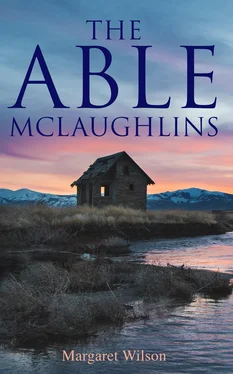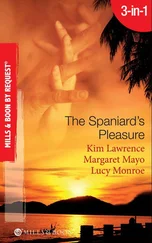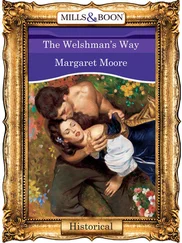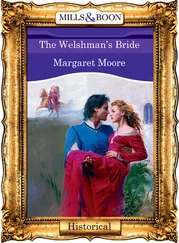Margaret Wilson - The Able McLaughlins
Здесь есть возможность читать онлайн «Margaret Wilson - The Able McLaughlins» — ознакомительный отрывок электронной книги совершенно бесплатно, а после прочтения отрывка купить полную версию. В некоторых случаях можно слушать аудио, скачать через торрент в формате fb2 и присутствует краткое содержание. Жанр: unrecognised, на английском языке. Описание произведения, (предисловие) а так же отзывы посетителей доступны на портале библиотеки ЛибКат.
- Название:The Able McLaughlins
- Автор:
- Жанр:
- Год:неизвестен
- ISBN:нет данных
- Рейтинг книги:5 / 5. Голосов: 1
-
Избранное:Добавить в избранное
- Отзывы:
-
Ваша оценка:
- 100
- 1
- 2
- 3
- 4
- 5
The Able McLaughlins: краткое содержание, описание и аннотация
Предлагаем к чтению аннотацию, описание, краткое содержание или предисловие (зависит от того, что написал сам автор книги «The Able McLaughlins»). Если вы не нашли необходимую информацию о книге — напишите в комментариях, мы постараемся отыскать её.
The Able McLaughlins — читать онлайн ознакомительный отрывок
Ниже представлен текст книги, разбитый по страницам. Система сохранения места последней прочитанной страницы, позволяет с удобством читать онлайн бесплатно книгу «The Able McLaughlins», без необходимости каждый раз заново искать на чём Вы остановились. Поставьте закладку, и сможете в любой момент перейти на страницу, на которой закончили чтение.
Интервал:
Закладка:
“You mus’na stare so at visitors, Hughie!”
“But why, mother? Why did he not say it?”
“Maybe he did’na ken it.”
“Did’na ken what?”
“The Psalm.”
“Did’na ken the fifteenth Psalm, and him a man grown!” Hughie had never seen anyone before who couldn’t say the fifteenth Psalm.
“Aw, mother!” he exclaimed remonstratingly. “Even Davie knows that!”
Wully chuckled. He knew the world. He had seen cities. He had marched across states. He had eaten ice cream.
CHAPTER II
Table of Contents
Wully slept the whole afternoon, and that evening the aunts and uncles and cousins began coming to see him. He and Allen, being among the oldest of the clan’s young fry, had been the first to enlist, though since then two of the McNairs, a Stevenson, and a McElhiney had grown old enough to fight. Allen’s death and Wully’s spectacular career had endeared him to the neighbors. They had suffered with him, they thought. Two years before, when they had gathered to offer their consolation to the family because he was reported dead, they had found his mother rejecting sympathy with as much decision as was civil. The United States government might be a powerful organization, but it could never make her believe that Wully had been shot in the back, running away from duty. The Stowes doubtless did well to array themselves in mourning for Harvey, but she knew her son was alive. And sure enough, after three weeks a letter came, no larger than the palm of her hand. She knew it had come when she saw a nephew running towards the house to give it to her. On one side, the little paper had said that Wully was alive and well in a prison in Texas, and on the other, crowded together, were ten names of comrades imprisoned with him, and Harvey Stowe’s name was written first and largest. That minute she had buttoned the bit of paper into Andy’s shirt pocket, and sent him fifteen miles down the creek to tell the Stowes to take off their mourning, and the clan, hearing the news from the mad-riding Andy had gathered to rejoice with her. And now that the exciting Wully was home again, they brought him wild turkeys, and the choice of the wild plums, an apple or two, first fruit of their new orchards, and whatever else their poverty afforded. Mrs. Stowe came to see him, bringing a package of sugar. But the Stowes were well-to-do. The others were exclusively what Allen had dubbed “the ragged lairds of the Waupsipinnikon.”
Not that their creek was really the Waupsipinnikon. Allen had only crossed that chuckling stream on his first journey with his father, but he had delighted in a name so whimsical, so rollicking, and had used it largely. Pigs and chickens of his christening bore it unharmed. And he put it into the song he used to sing sometimes, when the prairie’s youth and beauty were tired of dancing to his fiddle. All the neighbors were mentioned in it:
The McWhees, the McNabs, the McNorkels,
The Gillicuddies, the McElhineys, the McDowells,
The Whannels, the McTaggerts, the Strutheres,
The Stevensons, the McLaughlins, and the Sprouls.
In his pronunciation the meter was perfect, and Sprouls and McDowells rhymed perfectly, both of them, with “holes.” For an encore he would show his appreciative audience how the head of each family mentioned “asked the blessing,” always politely and stubbornly refusing to imitate the master of the house in which the fun was going on—at least until the master had retired.
Between the visits of the ragged lairds and their offspring, Wully got so much sleep that on the fourth day he announced himself able to help with the fall plowing. His mother refused to have such a suggestion considered, and they compromised on his digging carrots in the garden. At that task she found him doggedly working away after an hour, white and trembling. For a week he recovered from the fever that came on, sleeping by day and by night. The twelfth day he was so well that he rode to look over the “eighty” his father had bought for him with the two hundred dollars that had accrued to him during the fourteen months he lay in prison, trying to carve enough wooden combs to earn what would keep him from starving. His father explained that he might have brought land further on at a dollar and a half an acre. But this was the choice bit of land, and, moreover, it joined the home farm. And this bit of ground, rising just here was obviously the place for the house to be built. Wully smiled indulgently at the idea of his building a house. But he wasn’t to smile about it, his father protested. Indeed, they would some way get an acre broken this fall yet in time to plant maple seed, and poplar, for the first windbreak, so that the little trees would be ready for their duty.
The elder McLaughlin sighed with satisfaction as he talked. Even yet he had scarcely recovered from that shock of incredulous delight at his first glimpse of the incredible prairies; acres from which no frontiersman need ever cut a tree; acres in which a man might plow a furrow of rich black earth a mile long without striking a stump or a stone; a state how much larger than all of Scotland in which there was no record of a battle ever having been fought—what a home for a man who in his childhood had walked to school down a path between the graves of his martyred ancestors—whose fathers had farmed a rented sandpile enriched by the blood of battle among the rock of the Bay of Luce. Even yet he could scarcely believe that there existed such an expanse of eager virgin soil waiting for whoever would husband it. Ten years of storm-bound winters, and fever-shaken, marketless summers before the war, had not chilled his passion for it—nor poverty so great that sometimes it took the combined efforts of the clan to buy a twenty-five cent stamp to write to Scotland of the measureless wealth upon which they had fallen. From the time he was ten years old, he had dreamed of America. He had had to wait to realize his dream till his landlord had sold him out for rent overdue. What Wully remembered gallingly about that sale was that his grandmother had been present at it, and her neighbors, thinking she bought the poor household stuff to give back to her son, refused to bid for it against her. Then, having got it all cheap, she sold it at considerable profit, and pocketed the money. That was why, taught by his father, he despised everything that suggested Scottish stinginess. Nor had he wept a tear when the old woman died, soon after, and his father, taking his share of her hoardings, had departed for his Utopia. Some of the immigrants had long since lost their illusions. But not John McLaughlin. He loved his land like a blind and passionate lover. Really there was nothing glorious that one was not justified in imagining about a nation to be born to such an inheritance. And he told Wully that he might at least console himself with the thought that those months in prison had made him possessor of such land, that with the possible exception of the fabled Nile valley, there was probably in the world no richer. And the McLaughlins prided themselves on the fact that they were no American “soil-scratchers,” exhausting debauchers of virgin possibilities. Their rich soil, they promised themselves, was to be richer by far for every crop it yielded.
The next day Wully felt so well that he must have something to do. On the morrow the bi-weekly mail would be in, and if it brought orders for him, he would be returning to his regiment. He stood in the doorway looking toward his father’s very young orchard, and considering the possibilities of the afternoon. Of course, he might ride over and see Stowe’s sweetheart, who had come to see him the other time he was home ill. But he dreaded talking to a strange woman. She was pretty, certainly. That was why he was afraid of her. If he had been Allen, now, with an excuse for going to see a pretty girl, his horse would have been in a lather before he arrived. Wully had envied Stowe, sometimes, his eagerness for just a certain letter. It must, he thought in certain moods, after all be rather pleasant to have someone so dear that a man like Stowe would endanger his honor, and life itself by stealing away to see her. Stowe was to be married as soon as he got home. He was so close a friend that he talked to Wully about that. If Stowe had had a site for a house waiting him, as Wully had, he would have talked his friend deaf. But just the same, Wully wasn’t going to see his sweetheart. He would do anything for Stowe but that. Easing his conscience by that assurance, he heard his mother speaking to him.
Читать дальшеИнтервал:
Закладка:
Похожие книги на «The Able McLaughlins»
Представляем Вашему вниманию похожие книги на «The Able McLaughlins» списком для выбора. Мы отобрали схожую по названию и смыслу литературу в надежде предоставить читателям больше вариантов отыскать новые, интересные, ещё непрочитанные произведения.
Обсуждение, отзывы о книге «The Able McLaughlins» и просто собственные мнения читателей. Оставьте ваши комментарии, напишите, что Вы думаете о произведении, его смысле или главных героях. Укажите что конкретно понравилось, а что нет, и почему Вы так считаете.












